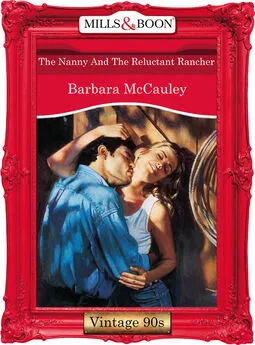Barbara Hambly - Dead water
- Название:Dead water
- Автор:
- Жанр:
- Издательство:неизвестно
- Год:неизвестен
- ISBN:нет данных
- Рейтинг:
- Избранное:Добавить в избранное
-
Отзывы:
-
Ваша оценка:
Barbara Hambly - Dead water краткое содержание
Dead water - читать онлайн бесплатно полную версию (весь текст целиком)
Интервал:
Закладка:
“He'd have to be a fool not to notice how alike they look,” answered January. “And whatever else he is, Jubal Cain isn't a fool. Any other white man, it's even odds whether they'd see it or not—their color's so different, and it always shocks me how little blankittes notice. But it might explain why, on a dark and foggy night, Cain made sure he wasn't alone when he came down to see that his slaves were fed.”
“ Could a slave kill a white man walking by?” asked Rose as they retreated through the passway to the port-side promenade. The rain had stopped entirely; the paddle was moving slowly as the banks closed in around the Silver Moon, overhanging boughs of oak and tupelo scraping hard on the sides. As January had feared, closed in by the trees the damp heat was ghastly, and away from the main channel of the river the air swarmed with mosquitoes and gnats. “Those chains aren't very long—they have to turn around and lean out to the extent of their arms to relieve their bowels over the river. And that iron must be extremely heavy.”
Rose, January realized, had never worn chains.
“You'd be surprised what you can do,” he said softly, “if you're really frightened, or really angry.”
“But would any of them have been that frightened of—or angry at—Weems? He was a thief, and a blackmailer, but not, as far as I've ever heard, a man of violence. I can't imagine anyone wasting his time trying to blackmail a slave. Not one who has no useful information about a current master, like these. Weems was an Abolitionist, too, at least a milk-and-water one. Why would any of the slaves have attacked him?”
January shook his head. “But they saw something. And two things happened last night: Weems's murder, and Julie's escape.”
“Julie.” Rose's mouth hardened into a thin line of anger.
“Did you see her go?”
“No,” From the bow January could hear the leadsman's shouts: “Half one! Half one! Quarter less twain . . .” And hoped that Levi Christmas and his boys had passed them in the night and were at present somewhere on the other side of Hitchins' Point. Looking up, he saw the planter Lockhart at the stern rail of the boiler-deck, rifle in the crook of his arm, silhouetted against the hot summer sky.
“It was dark as Egypt, as they say—you know how fog seems to drink up light, and there wasn't any too much from the deck lantern to begin with. Sophie and Julie came down to share supper with me, after they got their respective mistresses ready for dinner—Julie was just shaking over the prospect of being sold to Gleet.”
She ducked as a willow-branch swept over the deck, spattering her with leftover rain. Behind them the paddle slowed, water slithering from its bucket-boards, and the monotonous voice of the leadsman chanted, “Quarter one . . . quarter one . . .”
The thick trees seemed to absorb the sound.
“Mark one.”
“I don't think she's stopped crying since we left Vicksburg,” Rose went on. “And that nasty little hussy Skippen boxed her ears for it. Julie spoke of running away, but was terrified—naturally—of being beaten if she were caught and brought back: she has no concept of where Canada is, or even Ohio, nor which states forbid slavery and which permit it. She wasn't even terribly clear which direction north was, only that slaves running away follow the river. She'd been born and raised within five miles of New Orleans: she knows only upstream and down, toward the river or toward the swamp. Not unlike,” she added with sudden asperity, “some of the damsels whose mothers bring them to my school. We're stopped.”
The paddle hung still. Gleet came down the stern stair, cursing, his whip in one hand and a rifle in the other. Without a glance at them he went through the passway to the starboard promenade where the men were chained. A few moments later deck-hands appeared, unfastening the long boat-poles from the sides of the 'tween-decks.
Mr. Lundy, reflected January, had evidently been right about the chute. “How late in the evening was the last time you saw her?”
“Then,” said Rose. “Just before, and during dinner. Cissy came down, too, with the leftover tea-leaves from the children's tea; she got Eli to give us some hot water for a second run. All three of the girls went up together when the waiters came down the stairs from clearing away supper. That meant Mesdames Fischer and Roberson, and Miss Skippen, would be coming out soon, and might need someone to re-pin their hair before they spent the evening listening to music and dancing in the Saloon.”
There was a dry note in Rose's voice that made January flinch, though he knew she wasn't angry at him. And he felt again the slow, hot fury, that Mrs. Fischer's scheme should oblige Rose—a woman born in freedom, the daughter of a planter on Grand Isle—to sleep on the bare deck, live on the scraps of white folks' meals, and relieve herself over the side in full view of any stranger passing on the river road or sailing downstream in a flatboat.
No, he thought. No, we are not free. Having money will help—having a house will help. But it will not make us free.
She went on. “By then it was foggy and pitch black. Julie usually sleeps with me, and Sophie, when Mrs. Fischer is entertaining Weems—Julie generally comes down at eleven, after getting Miss Skippen ready for bed, but if either of those so-called ladies comes back from the dancing early, she wants her maid waiting right there when she comes in. I heard the leadsmen start calling out as we were coming up on the bar, and Mr. Molloy cursing them from the pilot-house. Just after we crossed over the bar Sophie came down with a blanket, and lay down beside me. I asked, Is Julie all right? And she said, I don't know. I'll tell you in the morning. I heard her crying a little before she went to sleep.”
“And in the morning, of course, the first thing anyone saw was Weems's body. So I take it you haven't had a chance to talk to her?”
Rose shook her head. “Jim saw the body first, and called out, Dear God, it's a man caught up there! Sophie was the one who recognized him, and screamed. Simon—he's the head engineer—was sleeping on deck and ran at once into the engine-room to have the engines stopped, and Sophie clutched on to the wood-pile, sobbing. She got herself in hand quickly, though, and said, Madame! Oh my poor Madame! and went running up the steps. That's the last I saw of her.”
“Julie had better be moving fast,” January said. “If the patrols catch her, they'll take her straight to Mayersville. She may, of course, have actually killed Weems—if he caught her going over the rail, for instance, and tried to stop her, though I can't imagine why he would have or what he'd have been doing down on the lower deck at that hour.”
“I can't either,” agreed Rose. “And I'll still take oath she got off the boat as we were going over the bar. The starboard promenade would be the logical place for her to go into the water unobserved. Her escape may be all they're hiding, you know.”
“It may,” agreed January. “I can understand Gleet's gang being terrified, but it's harder to believe Cain's gang would be that scared over the accusation of not reporting a runaway.”
“If I know Mrs. Fischer, I'll have the perfect opportunity to question Sophie, but at such appalling cost to myself that I hesitate—”
“Benjamin.”
January turned, to see Colonel Davis coming down the stern steps. The young planter wore a look of rather grim puzzlement, and the glint in his pale eyes told January instantly that there was trouble.
“Would you mind coming back with me to the Saloon? There are a few questions I need to ask you about where you were last night.”
The Saloon was hot and dim, and nearly empty, now that the rain had stopped and there was activity on shore worth staring at. As he followed Davis up the steps, January saw the deck-hands, and both coffles of male slaves, spreading out along the soaked muddy banks of the chute, shoving with their poles at the sides of the boat in an attempt to back her out before the water sank too far. In the engine-room they'd be drawing the fires out of the furnaces yet again.
Why no one had ever thought to disconnect the water-pumps from the engines and arrange for them to operate independently, January couldn't imagine. He'd suggested it to Rose, and she'd said, “My guess is the owners won't pay for a second engine. You have no idea how cheaply steamboats are built.”
Which, to January, sounded exactly like the sort of logic the blankittes lived by.
Whatever the reason, Mr. Molloy was pacing the Saloon like a caged tiger, a whiskey-glass in hand and face crimson with anger and impatience. “Where was he?” he demanded as Davis and January came out of the hallway into the Saloon. “Down with his yellow bitch? Any money she'll tell you he was with her last night.”
January opened his mouth to say, My wife isn't in the habit of lying, then closed it again, and made himself look at the floor.
There was something about, she'll tell you he was with her last night that brought the hair up on his nape.
As opposed to where?
He glanced across at Hannibal, still sitting at the card-table, and he saw the fiddler was both angry and scared.
Davis said, “Earlier today you told me you were in your master's stateroom all last night, sleeping, except that you woke once when you heard someone trying to force the door. Is that the truth?”
“Yes, sir.” January tried to keep the anger out of his own voice. “Maybe I should have gone after the man, but I didn't. It was pitch dark on the promenade and I was dead tired.”
“Yet you said you saw him when he opened the door.”
“He had a dark lantern, sir, shuttered. I could see there was someone there, but nothing of his face.”
“According to Mr. Molloy,” said Davis slowly, “when he returned to his stateroom at twelve-thirty, he saw that the door of Mr. Sefton's was ajar. Opening it—concerned lest there be a robbery in progress—he struck a match and found the room empty, though he says he saw your blankets on the floor.”
January opened his mouth, and closed it, fury rising like slow combustion through his chest to scald his face. Molloy lounged back against the bar, eyes on January's face, daring him to speak. Daring him to call a white man a liar in the presence of other white men.
Carefully, January said, “I don't know what to say to that, sir. I was in the room, and I was asleep. It wasn't you I saw unless you were out of the pilot-house at eleven, because I heard the leadsmen calling. In any case, the man I saw was small. He didn't fill the door, as you would, sir. Beyond that . . .”
“You telling me that ain't what I saw,” asked Molloy, with deadly softness, “boy?”
January took a deep breath and remained silent.
Hannibal said quietly, “Since my bondsman has better manners and more sense than to contradict a white man in this benighted country, I am telling you that wasn't what you saw, sir.”
Like a pouncing lion, Molloy crossed the distance between the bar and the card-table, dragged Hannibal from his chair by the front of his coat, and drove his fist hard into the fiddler's stomach. Davis was taken by surprise at this sudden violence, so it was January who caught Molloy first, the enraged pilot flinging Hannibal to the floor like a rag and whirling to smash January in the jaw. January staggered—Molloy was nearly his own height and twenty pounds heavier—and checked his own returning blow, braced himself as a second blow took him in the stomach.
Читать дальшеИнтервал:
Закладка:








